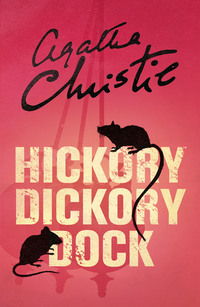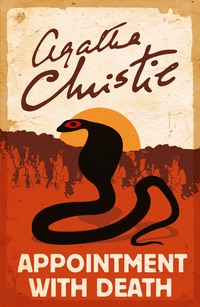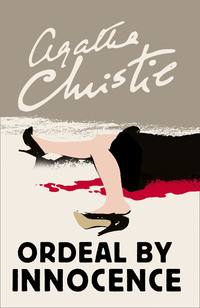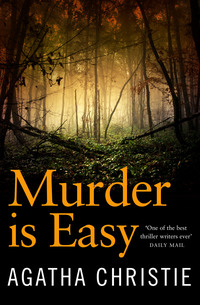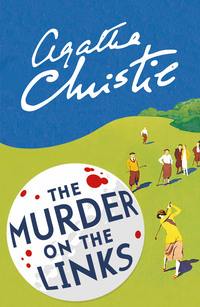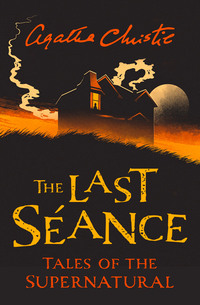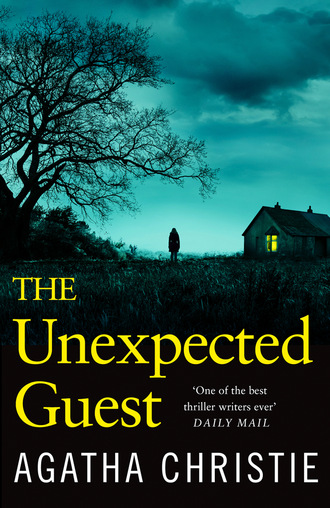
Полная версия
‘He was,’ Laura replied emphatically. With almost hysterical vehemence, she rose from the sofa and approached her uninvited guest. ‘Must we go on talking and talking about all this?’ she asked in exasperation. ‘It’s only putting off what’s got to happen in the end. Can’t you realize that you’ve got to ring up the police? You’ve no option. Don’t you see it would be far kinder to just do it now? Or is it that you want me to do it? Is that it? All right, I will.’
She moved quickly to the phone, but Starkwedder came up to her as she was lifting the receiver, and put his hand over hers. ‘We’ve got to talk first,’ he told her.
‘We’ve been talking,’ said Laura. ‘And anyway, there’s nothing to talk about.’
‘Yes, there is,’ he insisted. ‘I’m a fool, I dare say. But we’ve got to find some way out.’
‘Some way out? For me?’ asked Laura. She sounded incredulous.
‘Yes. For you.’ He took a few steps away from her, and then turned back to face her. ‘How much courage have you got?’ he asked. ‘Can you lie if necessary–and lie convincingly?’
Laura stared at him. ‘You’re crazy,’ was all she said.
‘Probably,’ Starkwedder agreed.
She shook her head in perplexity. ‘You don’t know what you’re doing,’ she told him.
‘I know very well what I’m doing,’ he answered. ‘I’m making myself an accessory after the fact.’
‘But why?’ asked Laura. ‘Why?’
Starkwedder looked at her for a moment before replying. Then, ‘Yes, why?’ he repeated. Speaking slowly and deliberately, he said, ‘For the simple reason, I suppose, that you’re a very attractive woman, and I don’t like to think of you being shut up in prison for all the best years of your life. Just as horrible as being hanged by the neck until you are dead, in my view. And the situation looks far from promising for you. Your husband was an invalid and a cripple. Any evidence there might be of provocation would rest entirely on your word, a word which you seem extremely unwilling to give. Therefore it seems highly unlikely that a jury would acquit you.’
Laura looked steadily at him. ‘You don’t know me,’ she said. ‘Everything I’ve told you may have been lies.’
‘It may,’ Starkwedder agreed cheerfully. ‘And perhaps I’m a sucker. But I’m believing you.’
Laura looked away, then sank down on the footstool with her back to him. For a few moments nothing was said. Then, turning to face him, her eyes suddenly a light with hope, she looked at him questioningly, and then nodded almost imperceptibly. ‘Yes,’ she told him, ‘I can lie if I have to.’
‘Good,’ Starkwedder exclaimed with determination. ‘Now, talk and talk fast.’ He walked over to the table by the wheelchair, flicking ash in the ashtray. ‘In the first place, who exactly is there in this house? Who lives here?’
After a moment’s hesitation, Laura began to speak, almost mechanically. ‘There’s Richard’s mother,’ she told him. ‘And there’s Benny–Miss Bennett, but we call her Benny–she’s a sort of combined housekeeper and secretary. An ex-hospital nurse. She’s been here for ages, and she’s devoted to Richard. And then there’s Angell. I mentioned him, I think. He’s a male nurse-attendant, and–well, valet, I suppose. He looks after Richard generally.’
‘Are there servants who live in the house as well?’
‘No, there are no live-in servants, only dailies who come in.’ She paused. ‘Oh–and I almost forgot,’ she continued. ‘There’s Jan, of course.’
‘Jan?’ Starkwedder asked, sharply. ‘Who’s Jan?’
Laura gave him an embarrassed look before replying. Then, with an air of reluctance, she said, ‘He’s Richard’s young half-brother. He–he lives with us.’
Starkwedder moved over to the stool where she still sat. ‘Come clean, now,’ he insisted. ‘What is there about Jan that you don’t want to tell me?’
After a moment’s hesitation, Laura spoke, though she still sounded guarded. ‘Jan is a dear,’ she said. ‘Very affectionate and sweet. But–but he isn’t quite like other people. I mean he’s–he’s what they call retarded.’
‘I see,’ Starkwedder murmured sympathetically. ‘But you’re fond of him, aren’t you?’
‘Yes,’ Laura admitted. ‘Yes–I’m very fond of him. That’s–that’s really why I couldn’t just go away and leave Richard. Because of Jan. You see, if Richard had had his own way, he would have sent Jan to an institution. A place for the mentally retarded.’
Starkwedder slowly circled the wheelchair, looking down at Richard Warwick’s body, and pondering. Then, ‘I see,’ he murmured. ‘Is that the threat he held over you? That, if you left him, he’d send the boy to an institution?’
‘Yes,’ replied Laura. ‘If I–if I believed that I could have earned enough to keep Jan and myself–but I don’t know that I could. And anyway, Richard was the boy’s legal guardian of course.’
‘Was Richard kind to him?’ Starkwedder asked.
‘Sometimes,’ she replied.
‘And at other times?’
‘He’d–he’d quite frequently talk about sending Jan away,’ Laura told him. ‘He’d say to Jan, “They’ll be quite kind to you, boy. You’ll be well looked after. And Laura, I’m sure, would come and see you once or twice a year.” He’d get Jan all worked up, terrified, begging, pleading, stammering. And then Richard would lean back in his chair and roar with laughter. Throw back his head and laugh, laugh, laugh.’
‘I see,’ said Starkwedder, watching her carefully. After a pause, he repeated thoughtfully, ‘I see.’
Laura rose quickly, and went to the table by the armchair to stub out her cigarette. ‘You needn’t believe me,’ she exclaimed. ‘You needn’t believe a word I say. For all you know, I might be making it all up.’
‘I’ve told you I’ll risk it,’ Starkwedder replied. ‘Now then,’ he continued, ‘what’s this, what’s-her-name, Bennett–Benny–like? Is she sharp? Bright?’
‘She’s very efficient and capable,’ Laura assured him.
Starkwedder snapped his fingers. ‘Something’s just occurred to me,’ he said. ‘How is it that nobody in the house heard the shot tonight?’
‘Well, Richard’s mother is quite old, and she’s rather deaf,’ Laura replied. ‘Benny’s room is over on the other side of the house, and Angell’s quarters are quite separate, shut off by a baize door. There’s young Jan, of course. He sleeps in the room over this. But he goes to bed early, and he sleeps very heavily.’
‘That all seems extremely fortunate,’ Starkwedder observed.
Laura looked puzzled. ‘But what are you suggesting?’ she asked him. ‘That we could make it look like suicide?’
He turned to look at the body again. ‘No,’ he said, shaking his head. ‘There’s no hope of suicide, I’m afraid.’ He walked over to the wheelchair and looked down at the corpse of Richard Warwick for a moment, before asking, ‘He was right-handed, I assume?’
‘Yes,’ replied Laura.
‘Yes, I was afraid so. In which case he couldn’t possibly have shot himself at that angle,’ he declared, pointing to Warwick’s left temple. ‘Besides, there’s no mark of scorching.’ He considered for a few seconds and then added, ‘No, the gun must have been fired from a certain distance away. Suicide is certainly out.’ He paused again before continuing. ‘But there’s accident, of course. After all, it could have been an accident.’
After a longer pause, he began to act out what he had in mind. ‘Now, say for instance that I came here this evening. Just as I did, in fact. Blundered in through this window.’ He went to the french windows, and mimed the act of stumbling into the room. ‘Richard thought I was a burglar, and took a pot shot at me. Well, that’s quite likely, from all you’ve been telling me about his exploits. Well, then, I come up to him’–and Starkwedder hastened to the body in the wheelchair–‘I get the gun away from him–’
Laura interrupted eagerly. ‘And it went off in the struggle–yes?’
‘Yes,’ Starkwedder agreed, but immediately corrected himself. ‘No, that won’t do. As I say, the police would spot at once that the gun wasn’t fired at such close quarters.’ He took a few more moments to reconsider, and then continued. ‘Well now, say I got the gun right away from him.’ He shook his head, and waved his arms in a gesture of frustration. ‘No, that’s no good. Once I’d done that, why the hell should I shoot him? No, I’m afraid it’s tricky.’
He sighed. ‘All right,’ he decided, ‘let’s leave it at murder. Murder pure and simple. But murder by someone from outside. Murder by person or persons unknown.’ He crossed to the french windows, held back a curtain, and peered out as though seeking inspiration.
‘A real burglar, perhaps?’ Laura suggested helpfully.
Starkwedder thought for a moment, and then said, ‘Well, I suppose it could be a burglar, but it seems a bit bogus.’ He paused, then added, ‘What about an enemy? That sounds melodramatic perhaps, but from what you’ve told me about your husband it seems he was the sort who might have had enemies. Am I right?’
‘Well, yes,’ Laura replied, speaking slowly and uncertainly, ‘I suppose Richard had enemies, but–’
‘Never mind the buts for the time being,’ Starkwedder interrupted her, stubbing out his cigarette at the table by the wheelchair, and moving to stand over her as she sat on the sofa. ‘Tell me all you can about Richard’s enemies. Number One, I suppose, would be Miss–you know, Miss quivering backside–the woman he took pot shots at. But I don’t suppose she’s a likely murderer. Anyway, I imagine she still lives in Norfolk, and it would be a bit far-fetched to imagine her taking a cheap day return to Wales to bump him off. Who else?’ he urged. ‘Who else is there who had a grudge against him?’
Laura looked doubtful. She got up, moved about, and began to unbutton her jacket. ‘Well,’ she began cautiously, ‘there was a gardener, about a year ago. Richard sacked him and wouldn’t give him a reference. The man was very abusive about it and made a lot of threats.’
‘Who was he?’ Starkwedder asked. ‘A local chap?’
‘Yes,’ Laura replied. ‘He came from Llanfechan, about four miles away.’ She took off her jacket and laid it across an arm of the sofa.
Starkwedder frowned. ‘I don’t think much of your gardener,’ he told her. ‘You can bet he’s got a nice, stay-at-home alibi. And if he hasn’t got an alibi, or it’s an alibi that only his wife can confirm or support, we might end up getting the poor chap convicted for something he hasn’t done. No, that’s no good. What we want is some enemy out of the past, who wouldn’t be so easy to track down.’
Laura moved slowly around the room, trying to think, as Starkwedder continued, ‘How about someone from Richard’s tiger-and lion-shooting days? Someone in Kenya, or South Africa, or India? Some place where the police can’t check up on him very easily.’
‘If I could only think,’ said Laura, despairingly. ‘If I could only remember. If I could remember some of the stories about those days that Richard told us at one time or another.’
‘It isn’t even as though we’d got any nice props handy,’ Starkwedder muttered. ‘You know, a Sikh turban carelessly draped over the decanter, or a Mau Mau knife, or a poisoned arrow.’ He pressed his hands to his forehead in concentration. ‘Damn it all,’ he went on, ‘what we want is someone with a grudge, someone who’d been kicked around by Richard.’ Approaching Laura, he urged her, ‘Think, woman. Think. Think!’
‘I–I can’t think,’ replied Laura, her voice almost breaking with frustration.
‘You’ve told me the kind of man your husband was. There must have been incidents, people. Heavens above, there must have been something,’ he exclaimed.
Laura paced about the room, trying desperately to remember.
‘Someone who made threats. Justifiable threats, perhaps,’ Starkwedder encouraged her.
Laura stopped her pacing, and turned to face him. ‘There was–I’ve just remembered,’ she said. She spoke slowly. ‘There was a man whose child Richard ran over.’
Chapter 4
Starkwedder stared at Laura. ‘Richard ran over a child?’ he asked excitedly. ‘When was this?’
‘It was about two years ago,’ Laura told him. ‘When we were living in Norfolk. The child’s father certainly made threats at the time.’
Starkwedder sat down on the footstool. ‘Now, that sounds like a possibility,’ he said. ‘Anyway, tell me all you can remember about him.’
Laura thought for a moment, and then began to speak. ‘Richard was driving back from Cromer,’ she said. ‘He’d had far too much to drink, which was by no means unusual. He drove through a little village at about sixty miles an hour, apparently zig-zagging quite a bit. The child–a little boy–ran out into the road from the inn there–Richard knocked him down and he was killed instantly.’
‘Do you mean,’ Starkwedder asked her, ‘that your husband could drive a car, despite his disability?’
‘Yes, he could. Oh, it had to be specially built, with special controls that he could manage, but, yes, he was able to drive that vehicle.’
‘I see,’ said Starkwedder. ‘What happened about the child? Surely the police could have got Richard for manslaughter?’
‘There was an inquest, of course,’ Laura explained. A bitter note crept into her voice as she added, ‘Richard was exonerated completely.’
‘Were there any witnesses?’ Starkwedder asked her.
‘Well,’ Laura replied, ‘there was the child’s father. He saw it happen. But there was also a hospital nurse–Nurse Warburton–who was in the car with Richard. She gave evidence, of course. And according to her, the car was going under thirty miles an hour and Richard had had only one glass of sherry. She said that the accident was quite unavoidable–the little boy just suddenly rushed out, straight in front of the car. They believed her, and not the child’s father who said that the car was being driven erratically and at a very high speed. I understand the poor man was–rather over-violent in expressing his feelings.’ Laura moved to the armchair, adding, ‘You see, anyone would believe Nurse Warburton. She seemed the very essence of honesty and reliability and accuracy and careful understatement and all that.’
‘You weren’t in the car yourself?’ Starkwedder asked.
‘No, I wasn’t,’ Laura replied. ‘I was at home.’
‘Then how do you know that what Nurse what’s her-name said mightn’t have been the truth?’
‘Oh, the whole thing was very freely discussed by Richard,’ she said bitterly. ‘After they came back from the inquest, I remember very clearly. He said, “Bravo, Warby, jolly good show. You’ve probably got me off quite a stiff jail sentence.” And she said, “You don’t deserve to have got off, Mr Warwick. You know you were driving much too fast. It’s a shame about that poor child.” And then Richard said, “Oh, forget it! I’ve made it worth your while. Anyway, what’s one brat more or less in this overcrowded world? He’s just as well out of it all. It’s not going to spoil my sleep, I assure you.” ’
Starkwedder rose from the stool and, glancing over his shoulder at Richard Warwick’s body, said grimly, ‘The more I hear about your husband, the more I’m willing to believe that what happened tonight was justifiable homicide rather than murder.’ Approaching Laura, he continued, ‘Now then. This man whose child was run over. The boy’s father. What’s his name?’
‘A Scottish name, I think,’ Laura replied. ‘Mac–Mac something–MacLeod? MacCrae?–I can’t remember.’
‘But you’ve got to try to remember,’ Starkwedder insisted. ‘Come on, you must. Is he still living in Norfolk?’
‘No, no,’ said Laura. ‘He was only over here for a visit. To his wife’s relations, I think. I seem to remember he came from Canada.’
‘Canada–that’s a nice long way away,’ Starkwedder observed. ‘It would take time to chase up. Yes,’ he continued, moving to behind the sofa, ‘yes, I think there are possibilities there. But for God’s sake try to remember the man’s name.’ He went across to his overcoat on the armchair in the recess, took his gloves from a pocket, and put them on. Then, looking searchingly around the room, he asked, ‘Got any newspapers about?’
‘Newspapers?’ Laura asked, surprised.
‘Not today’s,’ he explained. ‘Yesterday’s or the day before would do better.’
Rising from the sofa, Laura went to a cupboard behind the armchair. ‘There are some old ones in the cupboard here. We keep them for lighting fires,’ she told him.
Starkwedder joined her, opened the cupboard door, and took out a newspaper. After checking the date, he announced, ‘This is fine. Just what we want.’ He closed the cupboard door, took the newspaper to the desk, and from a pigeon-hole on the desk extracted a pair of scissors.
‘What are you going to do?’ asked Laura.
‘We’re going to manufacture some evidence.’ He clicked the scissors as though to demonstrate.
Laura stared at him, perplexed. ‘But suppose the police succeed in finding this man,’ she asked. ‘What happens then?’
Starkwedder beamed at her. ‘If he still lives in Canada, it’ll take a bit of doing,’ he announced with an air of smugness. ‘And by the time they do find him, he’ll no doubt have an alibi for tonight. Being a few thousand miles away ought to be satisfactory enough. And by then it will be a bit late for them to check up on things here. Anyway, it’s the best we can do. It’ll give us breathing space at all events.’
Laura looked worried. ‘I don’t like it,’ she complained.
Starkwedder gave her a somewhat exasperated look. ‘My dear girl,’ he admonished her, ‘you can’t afford to be choosy. But you must try to remember that man’s name.’
‘I can’t, I tell you, I can’t,’ Laura insisted.
‘Was it MacDougall, perhaps? Or Mackintosh?’ he suggested helpfully.
Laura took a few steps away from him, putting her hands to her ears. ‘Do stop,’ she cried. ‘You’re only making it worse. I’m not sure now that it was Mac anything.’
‘Well, if you can’t remember, you can’t,’ Starkwedder conceded. ‘We shall have to manage without. You don’t remember the date, by any chance, or anything useful like that?’
‘Oh, I can tell you the date, all right,’ said Laura. ‘It was May the fifteenth.’
Surprised, Starkwedder asked, ‘Now, how on earth can you remember that?’
There was bitterness in Laura’s voice as she replied, ‘Because it happened on my birthday.’
‘Ah, I see–yes–well, that solves one little problem,’ observed Starkwedder. ‘And we’ve also got one little piece of luck. This paper is dated the fifteenth.’ He cut the date out carefully from the newspaper.
Joining him at the desk and looking over his shoulder, Laura pointed out that the date on the newspaper was November the fifteenth, not May. ‘Yes,’ he admitted, ‘but it’s the numbers that are the more awkward. Now, May. May’s a short word–ah, yes, here’s an M. Now an A, and a Y.’
‘What in heaven’s name are you doing?’ Laura asked.
Starkwedder’s only response, as he seated himself in the desk chair, was, ‘Got any paste?’
Laura was about to take a pot of paste from a pigeon-hole, but he stopped her. ‘No, don’t touch,’ he instructed. ‘We don’t want your fingerprints on it.’ He took the pot of paste in his gloved hands, and removed the lid. ‘How to be a criminal in one easy lesson,’ he continued. ‘And, yes, here’s a plain block of writing paper–the kind sold all over the British Isles.’ Taking a notepad from the pigeon-hole, he proceeded to paste words and letters onto a sheet of notepaper. ‘Now, watch this, one–two–three–a bit tricky with gloves. But there we are. “May fifteen. Paid in full.” Oh, the “in” has come off.’ He pasted it back on again. ‘There, now. How do you like that?’
He tore the sheet off the pad and showed it to her, then went across to Richard Warwick’s body in its wheelchair. ‘We’ll tuck it neatly into his jacket pocket, like that.’ As he did so, he dislodged a pocket lighter, which fell to the floor. ‘Hello, what’s this?’
Laura gave a sharp exclamation and tried to snatch the lighter up, but Starkwedder had already done so, and was examining it. ‘Give it to me,’ cried Laura breathlessly. ‘Give it to me!’
Looking faintly surprised, Starkwedder handed it to her. ‘It’s–it’s my lighter,’ she explained, unnecessarily.
‘All right, so it’s your lighter,’ he agreed. ‘That’s nothing to get upset about.’ He looked at her curiously. ‘You’re not losing your nerve, are you?’
She walked away from him to the sofa. As she did so, she rubbed the lighter on her skirt as though to remove possible fingerprints, taking care to ensure that Starkwedder did not observe her doing so. ‘No, of course I’m not losing my nerve,’ she assured him.
Having made certain that the pasted-up message from the newspaper in Richard Warwick’s breast pocket was tucked securely under the lapel, Starkwedder went over to the desk, replaced the lid of the paste-pot, removed his gloves, took out a handkerchief, and looked at Laura. ‘There we are!’ he announced. ‘All ready for the next step. Where’s that glass you were drinking out of just now?’
Laura retrieved the glass from the table where she had deposited it. Leaving her lighter on the table, she returned with the glass to Starkwedder. He took it from her, and was about to wipe off her fingerprints, but then stopped. ‘No,’ he murmured. ‘No, that would be stupid.’
‘Why?’ asked Laura.
‘Well, there ought to be fingerprints,’ he explained, ‘both on the glass and on the decanter. This valet fellow’s, for one, and probably your husband’s as well. No fingerprints at all would look very fishy to the police.’ He took a sip from the glass he was holding. ‘Now I must think of a way to explain mine,’ he added. ‘Crime isn’t easy, is it?’
With sudden passion, Laura exclaimed, ‘Oh, don’t! Don’t get mixed up in this. They might suspect you.’
Amused, Starkwedder replied, ‘Oh, I’m a very respectable chap–quite above suspicion. But, in a sense I am mixed up in it already. After all, my car’s out there, stuck fast in the ditch. But don’t worry, just a spot of perjury and a little tinkering with the time element–that’s the worst they’d be able to bring against me. And they won’t, if you play your part properly.’
Frightened, Laura sat on the footstool, with her back to him. He came round to face her. ‘Now then,’ he said, ‘are you ready?’
‘Ready–for what?’ asked Laura.
‘Come on, you must pull yourself together,’ he urged her.
Sounding dazed, she murmured, ‘I feel–stupid–I–I can’t think.’
‘You don’t have to think,’ Starkwedder told her. ‘You’ve just got to obey orders. Now then, here’s the blueprint. First, have you got a furnace of any kind in the house?’
‘A furnace?’ Laura thought, and then replied, ‘Well, there’s the water boiler.’
‘Good.’ He went to the desk, took the newspaper, and rolled up the scraps of paper in it. Returning to Laura, he handed her the bundle. ‘Now then,’ he instructed her, ‘the first thing you do is to go into the kitchen and put this in the boiler. Then you go upstairs, get out of your clothes and into a dressing-gown–or negligée, or what-have-you.’ He paused. ‘Have you got any aspirin?’
Puzzled, Laura replied, ‘Yes.’
As though thinking and planning as he spoke, Starkwedder continued, ‘Well–empty the bottle down the loo. Then go along to someone–your mother-in-law, or Miss–what is it–Bennett?–and say you’ve got a headache and want some aspirin. Then, while you’re with whoever it is–leave the door open, by the way–you’ll hear the shot.’
‘What shot?’ asked Laura, staring at him.
Without replying, Starkwedder crossed to the table by the wheelchair and picked up the gun. ‘Yes, yes,’ he murmured absently, ‘I’ll attend to that.’ He examined the gun. ‘Hm. Looks foreign to me–war souvenir, is it?’
Laura rose from the stool. ‘I don’t know,’ she told him. ‘Richard had several foreign makes of pistol.’
‘I wonder if it’s registered,’ Starkwedder said, almost to himself, still holding the gun.
Laura sat on the sofa. ‘Richard had a licence–if that’s what you call it–a permit for his collection,’ she said.
‘Yes, I suppose he would have. But that doesn’t mean that they would all be registered in his name. In practice, people are often rather careless about that kind of thing. Is there anyone who’d be likely to know definitely?’


